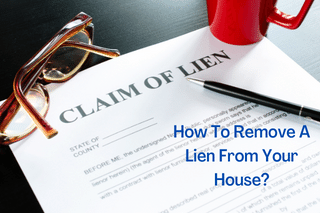Medical bills can be a huge financial burden, and for some people, they can become overwhelming. If you are unable to pay your medical bills, can the hospital or other healthcare provider put a lien on your house? Let’s take a look at what happens when you don’t pay your medical bills and whether or not your house is at risk.
Not paying your medical bills can have some serious consequences. The first is that your credit score will suffer. This will make it difficult to get loans in the future, and you may even be denied for things like a mortgage or a car loan. Additionally, if you don’t pay your medical bills, the hospital or other provider may turn your account over to a collection agency.
At this point, you may be wondering if the hospital or other provider can put a lien on your house for unpaid medical bills. Read more to learn.
Table of Contents
• Medical Debt Forgiveness Act
• What Is a Medical Debt Lien
• What Is A Lien On A Property
• A Lien On Your House Because Of Unpaid Medical Bills
➥What Happens If I Don’t Pay My Medical Bills
• How To Protect My House From Medical Debt
• How Does Medical Debt Impact My Credit Score
• How To Remove A Lien From Your House
• Why Should You Sell Your House With a Lien
Medical Debt Forgiveness Act
The healthcare provider usually notifies you of the bill first. If you’re unable to pay, they may send it to collections. Once it’s in collections, the debt is reported to the credit agencies and will appear on your credit report. This can lower your credit score and make it difficult to get approved for loans or lines of credit in the future.
The Medical Debt Relief Act is a law that was passed in March of 2010. The law requires collection agencies to delete any information about medical debt from your credit report once the debt has been paid. This means that if you have unpaid medical bills, you may be worried about a lien being placed on your house. Find out what this is and how to avoid it.
What Is a Medical Debt Lien?

A medical debt lien is a legal claim that a healthcare provider can place on your property if you owe them money.
Medical debt liens are relatively rare, and they are usually only used as a last resort. If you are having trouble paying your medical bills, there are options available to you. You can work out a payment plan with your healthcare provider or look into financial assistance programs.
What Is A Lien On A Property?
A lien is a legal claim against your property. This means that if you own a house and have outstanding debt, the creditor can place a lien on your house. The purpose of the lien is to secure the debt so that if you sell your house, the proceeds from the sale will go towards paying off the debt. Liens can also be placed on other things like cars or boats.
If you’re worried about a lien being placed on your property, the best thing you can do is stay on top of your debt and make sure you’re making regular payments.
Can They Put A Lien On Your House Because Of Unpaid Medical Bills?
In short, yes, healthcare providers can put a lien on your house for unpaid medical bills. However, it’s important to note that this is not a common practice and usually only happens in extreme cases.
Don’t wait until the debt is sent to collections before taking action. If you’re having trouble paying your medical bills, reach out to your healthcare provider and see if there are options available to you.
What Happens If I Don’t Pay My Medical Bills?
If you don’t pay your medical bills, the healthcare provider may send your debt to collections. This means that a collection agency will contact you and try to collect on the debt. If you are contacted by a collection agency, you should try to work out a payment plan. Once your debt is in collections, it will show up on your credit report, which can impact your credit score.
If you don’t pay your medical bills and the healthcare provider doesn’t take any action, the debt may eventually fall off of your credit report. This is because medical debt has a statute of limitations, which is usually around six years. This means that after six years, the healthcare provider can no longer take any legal action against you to collect on the debt.
While it’s possible that your medical debt may fall off of your credit report after six years, this doesn’t mean that you don’t owe the money. The healthcare provider can still try to collect on the debt through other means, such as wage garnishment or a lien on your property.
Call Now (818) 651-8166
Why Sell Your Home to ASAP Cash Offer?
- You Pay Zero Fees
- Close quickly 7-28 days.
- Guaranteed Offer, no waiting.
- No repairs required, sell “AS IS”
- No appraisals or delays.
How Do You Protect Your Estate From Medical Bills
If you are having trouble paying your medical bills, you can protect your home by taking action early. You should contact your healthcare provider and try to work out a payment plan.
If a collection agency contacts you, you should try to work out a payment plan. Once a debt is in collections, it will show up on your credit report which can impact your credit score.
If you can’t afford to pay off the debt in full, you may be able to negotiate a lower amount. You can also look into government assistance programs that may be able to help you pay off your debt.
How Does Medical Debt Impact My Credit Score?
Medical debt can have a major impact on your credit score. This is because medical debt is reported to the credit bureaus differently than other types of debt. When you have medical debt, the account is not reported to the credit bureaus until it is sent to collections. This means that your credit score won’t be impacted until the debt is in collections.
Once the debt is in collections, it will show up on your credit report as a negative item. This can have a major impact on your credit score and stay on your credit report for up to seven years.
How To Remove A Lien From Your House?
If a lien has been placed on your house, you can try to negotiate with the healthcare provider to have the lien removed. You may be able to negotiate a lower amount that you can pay off over time. You can also look into government assistance programs that may be able to help you pay off your debt.
If you’re unable to negotiate a payment plan or have the lien removed, you can try to sell your house. You may be able to sell your house for less than the amount of the lien, but this will allow you to pay off the medical debt.

Why Should You Sell Your House With a Lien?
If you have a lien on your house, it’s important to take action to avoid having your house foreclosed on. Selling your house is one option that you can use to pay off the debt and avoid foreclosure.
Do you need cash urgently? You don’t have to worry because ASAP Cash Offer will help you. We are a company that buys houses even with liens. We buy houses as-is for cash within 7-28 days. Contact us at (818) 651-8166 now and let’s help you take care of your financial problems.
Call Now (818) 651-8166
Why Sell Your Home to ASAP Cash Offer?
- You Pay Zero Fees
- Close quickly 7-28 days.
- Guaranteed Offer, no waiting.
- No repairs required, sell “AS IS”
- No appraisals or delays.



